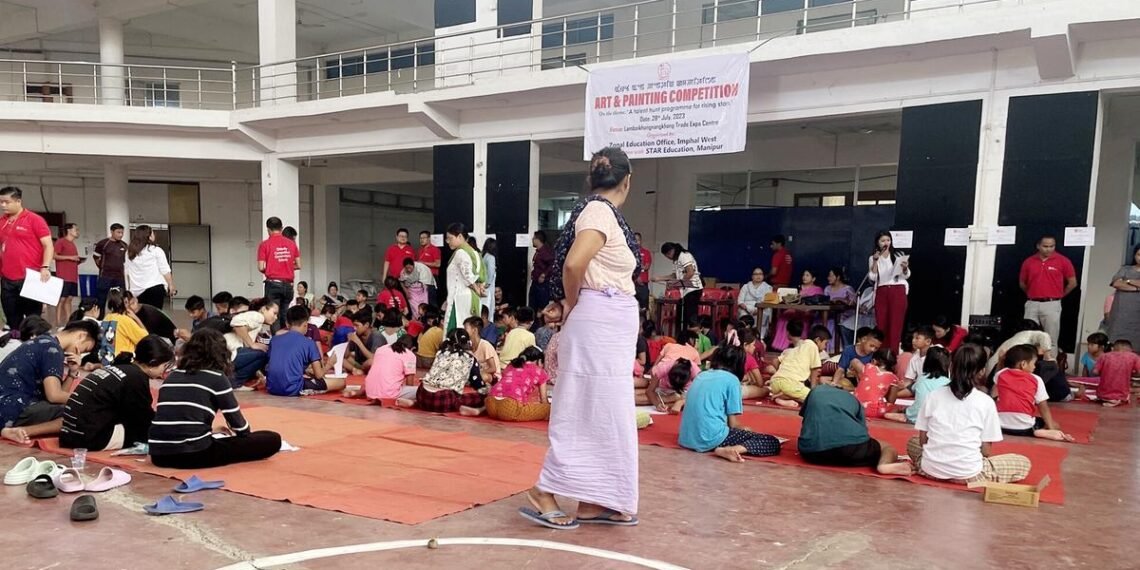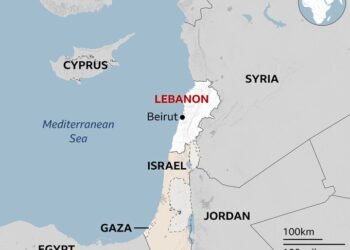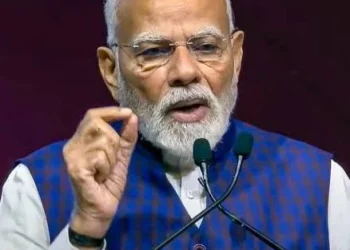The tribal body warned that forced closure of IDP camps was unsafe and premature, and could reignite ethnic tensions. KIM also accused the CBI and NIA of selective action and inaction in key cases, including gender violence and armed incitement.
BY PC Bureau
July 15 — In the wake of ongoing tensions and displacement caused by the ethnic violence that erupted in Manipur on May 3, 2023, the Kuki Inpi Manipur (KIM), a leading tribal body representing the Kuki-Zo community, has raised serious concerns about the State’s rehabilitation efforts, law enforcement response, and political approach.
In an interview with this publication, KIM spokesperson Janghaolun Haokip termed the compensation announced by Manipur’s Chief Secretary as “deeply inadequate” given the trauma and devastation faced by the Kuki-Zo people. The Manipur government recently offered ₹3 lakh as compensation for homes destroyed during the unrest.

“While the gesture may be symbolic,” Haokip said, “any meaningful discussion on compensation or rehabilitation can only take place once an amicable political solution is reached—one that includes the legitimate demand for a Separate Administration and ensures the safety, dignity, and future of the Kuki-Zo people.”
READ: Grand Mufti Intervenes to Save Kerala Nurse from Yemen Execution
The statement underscores KIM’s consistent position that monetary relief without political resolution remains superficial and ineffective. For the community, political dignity and self-governance remain central to any post-conflict recovery. “ Can anyone build a house from scratch in Rs 3 lakh?” he asks, describing the officer as a “pittance and a cruel joke.”
Rehabilitation Hinges on Political Settlement
As more than 60,000 people remain displaced across Manipur, questions about the roadmap for their rehabilitation have gained urgency. But for KIM, rebuilding lives cannot begin until the root political grievances are addressed.
“Long-term rehabilitation,” Haokip stressed, “can only be addressed after a political settlement is achieved. A dignified return or resettlement must be accompanied by security guarantees, infrastructure development, and recognition of political rights.”
Burnt Homes, Broken Trust: Manipur’s Unrealistic Relief Plan#ManipurViolence #IDPVoices #MeiteiHomes #KukiZoCrisis #3LakhCompensation #DisplacedButNotSilent #JusticeBeforeReturn #ManipurBurning #RebuildWithDignity #EthnicDivide https://t.co/Wp9Z9pqPnv
— POWER CORRIDORS (@power_corridors) July 6, 2025
Haokip’s emphasis on political rights and safety reflects the community’s unease about returning to pre-conflict arrangements. He argues that without institutional safeguards, any attempt at rehabilitation risks being superficial and unsustainable.
‘Return Must Be Voluntary, Not Forced’
The idea of closing down camps housing internally displaced persons (IDPs) has been floated in official circles, but KIM views any such move with caution. The group warns that pushing displaced people back into unsafe environments could exacerbate tensions.
“The closure of IDP camps must not be forced,” Haokip cautioned. “Return or relocation must be voluntary, safe, and sustainable. At this juncture, it is neither feasible nor secure for Kuki-Zo people to return to Imphal or for Meiteis to return to hill areas. Premature closure risks reigniting tensions.”
READ: Mizoram CM Meets PM Modi: Chin Refugees Top Agenda
This reflects a broader fear: that physical return without reconciliation and guarantees of safety could reignite the very violence that displaced the communities in the first place.
Central Agencies Face Credibility Questions
Haokip also voiced strong dissatisfaction with the Central Bureau of Investigation (CBI) and the National Investigation Agency (NIA), the key agencies handling violence-related cases in the state.
“KIM remains deeply concerned about the lack of accountability and the slow pace of justice. Investigations appear selective, and the absence of swift action has eroded public confidence in national institutions,” Haokip said.
While these agencies were expected to bring justice to victims and restore faith in the rule of law, KIM believes their performance has been marred by delay and selective enforcement.
‘Failure to Act, Especially in Gender Violence Cases’
Asked to elaborate on these lapses, Haokip outlined specific failures of both agencies that have, according to KIM, damaged public trust.
“Significant lapses include failure to take prompt action against identified perpetrators; delays in filing charge sheets; lack of accountability in cases involving gender-based violence; and apparent inaction in cases of public incitement and armed intimidation.”
He further added that the Kuki-Zo people have remained within the bounds of the Constitution and have no involvement in anti-national activities. “The CBI and NIA are irrelevant in this context,” he said, “as the Kukis are not engaging in anything against the interests of the country.”
‘Selective Justice Deepens Alienation’
Haokip also pointed to specific instances that have inflamed community grievances, including the failure to arrest individuals accused of inciting or leading the violence. One such figure is Korounganba Khuman, the commander of the Arambai Tenggol group, who walks free despite NIA cases iof attempted murder, loot, arson, and illegal arms possession.
“The continued freedom of such persons , despite extensive evidence, points to systemic failures and possible political shielding,” Haokip alleged. “This selective approach to justice only deepens the community’s sense of alienation and insecurity.”
The Kuki Inpi Manipur’s stance reiterates its long-standing position: that peace, rehabilitation, and justice in Manipur cannot be delinked from a political solution that addresses the core demands of the Kuki-Zo people. As the crisis enters its second year, tensions remain high and trust fragile—conditions that, as per KIM, demand more than token gestures or administrative offers.














